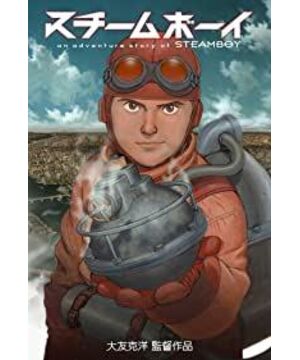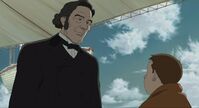I bought a disc before but haven't watched it-now I am very grateful for my laziness-such a movie is really a shame not to watch it in the theater.
The plot of the movie is not complicated, but it is indeed thought-provoking.
What the movie tells us is that technology is great and terrible, and no one can stop the advancement of technology. Although every technology is invented and controlled by people, in fact, from a macro perspective, technology is not human. What can be controlled-human hearts are too complicated, human desires are too greedy, and humans are too terrible-technology will become a behemoth with overwhelming power, which can certainly benefit the common people, but it is more likely to be a waste of life.
Science and technology can naturally benefit mankind in the hands of the good, but there will never be only the good in the world. So the evil ones can certainly use technology to harm the world, but since the evil ones can't dominate everything, the chance of "human beings destroyed" is actually not great.
Of course, the destruction of individuals may be countless (just like the countless cannon fodder in the climax of the film in the Battle of London—of course, the film did not show more of the tragic and tragic life and death of individuals—because from the perspective of "the long river of history", these are indeed It's "a drop in the ocean"-I think it's not necessarily because the director is cold-blooded. The life and death of an individual is irrelevant. There are enough artworks describing the tragedies of individuals, families, populations, and countries, and "Steam Boy" has no time to do it for the time being).
Furthermore, the complexity of a person can be simply measured by "good and evil" (the grandfather and father of Lei are proof), and there are endless things that happen to be self-defeating. Good deeds are evil, and evil deeds are also commonplace. So, what can we do but helpless?
"The evil of industrial civilization" is beyond doubt. There is no alternative; it is
absolutely impossible to return to the "golden age" of slash-and-burn in a small country with few people. There is no alternative;
technology (or civilization) is bound to advance blindly. There is no alternative;
in fact, no one can predict and grasp what the future will be. Helpless.
It is this "helplessness" that makes the plot in the film not smooth enough, and the characterization is not lacking in contradictions (especially Lei's father, Dr. Eddie, whose actions are simply unbelievable). I suspect that the director has discovered that "humanity and technology" are in fact. The problem is too big, too complicated, and I can't explain it clearly-everyone is "in this mountain", how can I jump to see it? So I just don't insist on the rigor of the plot (of course it can be said to be the film's failure).
At this point, in fact, the fundamental problem is probably not "technology VS humans", but the problem of "humans" composed of countless "selfs" as an individual "person"-it seems to come to the stage. Kafka, stop, we don't understand philosophy.
(The above Luo Liluo may be guilty of what Ying Shuyan said, but I have always believed that Ying Shuyan was originally one of my generation’s important tasks)
Finally, let’s talk about the pictures. The pictures are really good and have a visual impact. No less than any American blockbuster (or even worse), whether it is a big scene or a small detail, its meticulous and precise, can only be described with superb craftsmanship, as long as you think about it all comes from a hand-painted picture, It is even more awe-inspiring. The Japanese are hateful, but they can't help but admire them.
PS "Deep thinking" is the most earth-shattering sentence in Yu Qiuyu's lecture I was fortunate enough to hear in 2001, and it has been "deeply" in my mind ever since.
View more about Steamboy reviews











